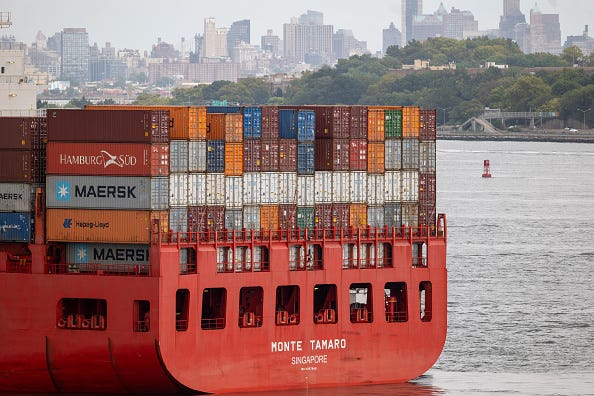
(WWJ) Economists are bracing for the incoming Trump administration, saying that the president-elect's promise to impose massive tariffs on foreign goods will have wide-ranging ramifications.
These tariffs are a centerpiece of Trump's economic agenda, and a move Trump claims will shrink America's trade deficits and force foreign nations to grant concessions.
But what would these tariffs mean for U.S. consumers?
WWJ Newsradio 950's Dan Jenkins asked that of Alan Deardorff, Professor Emeritus of International Economics and Public Policy at the University of Michigan.
Basically, Deardorff said, it's regular folks who will end up paying more when they go shopping.
"A tariff is a tax on imports; it is paid when the imports cross the border. They get added to whatever price the seller is asking to be paid," Deardorff said. "In principle, there could be some reduction in what the sellers charged because of the fact of the tariff. In practice — and we learned actually from Trump using tariffs in 2018 — in fact, almost the entire tax simply shows up as an increase in the price that is paid for the imported good."
Trump has said he plans to install a blanket tariff of 10% to 20% on all imports, with additional tariffs of 60% to 100% on goods brought in from China. During the Presidential debate in September, Trump characterized the plan as a way to extract money from nations that owe a lot to the U.S.
“Other countries are going to, finally, after 75 years, pay us back for all that we’ve done for the world,” Trump said during the debate.
Another promise Trump ran on in 2024 was bringing down the price of groceries and other items that everyday Americans have been struggling to afford amid high inflation. But Deardorff said he does not expect these tariffs would help with that.
"Well, it's going to raise the prices of the imported goods," Deardorff predicted. "It's going to raise the prices of domestically produced goods that compete directly with those imports because their prices can go up once the import prices go up. So, it's going to raise the prices of consumer goods that are of those sort."
"Most of our imports are actually not consumer goods, they are inputs to the production of other goods. It will raise the costs of them, and therefore the prices of them," Deardorff added. "So, it's going to cause a substantial increase in prices on an awful lot of the goods in the US economy/ Unlike inflation, which is defined as prices going up year after year after year, this is in some sense a one time increase because the tariff gets put in place, it raises the prices."
As for how much prices may go up, Deardorff said studies have shown it's likely to be somewhere in the neighborhood of 1% to 2% in many cases.
A new report by the National Retail Federation estimates that, as a result of these tariffs, Americans could lose $46 billion to $78 billion in spending power each year.
"Tariffs are simply distorting international trade as they are distorting markets. They are unambiguously in economic terms, lowering the well being of the countries that use them," Deardorff said. "They may to some extent be helpful for the competing industries that compete directly with imports, but they are harmful for all the industries that use the imported inputs."
"So, they overall they cause substantial harm, whether or not you go into a recession, they cause substantial harm to everybody in the country," he added. "And that, that is the main message that we economists would try to give about the effect of tariffs."
MORE: Steve Madden cutting Chinese production to avoid Trump tariffs
